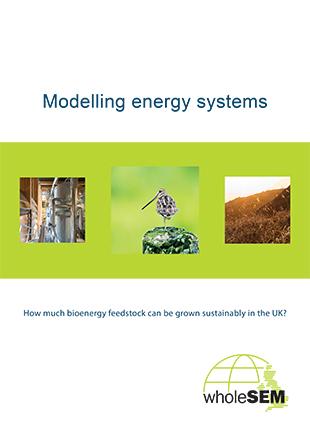 How much bioenergy feedstock can be grown sustainably in the UK?
How much bioenergy feedstock can be grown sustainably in the UK?
Energy policy in the UK, which seeks a balance between costs, security of supply and commitments to reduce greenhouse gas emissions, is influenced by the forecasts of whole system energy models. The value of these forecasts depends on predictions of costs and technical capability, and practical deployment constraints. At present, bioenergy plays a prominent role in future energy planning in the UK, although it currently contributes only around 4% of the primary energy requirement. Whilst most of the feedstock used in the UK is currently sourced from UK waste, the crop/plant-based component is mostly imported. The potential contribution of domestic bioenergy feedstock to future supply depends on the competition between domestic food production, bioenergy and other land-based services. It also influences water stress, biodiversity and net greenhouse gas emissions.
This report suggests that it should be possible to commit up to 900,000 hectares to bioenergy feedstock production in the UK without undue land stress, with limited impact on biodiversity and a net benefit in reducing GHG emissions. However, the question of whether the UK will develop bioenergy production up to this level depends on a combination of government and business actions and on the farmers’ perceptions of longterm policy, subsidies or contracts. Additionally there is a need for in-depth field observations that provide evidence of the environmental benefits and other negative impacts that could result from deploying bioenergy at this scale. Policy discussions and future development of energy models should in future address the physical constraints on total land commitment in the UK, a wider range of sustainability criteria in the assessment of impacts of bioenergy production, uncertainty about the consequences of UK imports, and the requirements for long-term incentives to drive significant change in agricultural practice.
